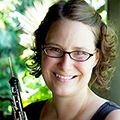Virtual Ecology experience opens up nature learning opportunities
adrianaRestrictions at the outset of the COVID-19 pandemic weren’t fun, but some positives appeared out of that isolation. At Washington State University, one lasting benefit is the Virtual Ecology experience for students and, thanks to social media, the public.
Prior to 2020, students enrolled in WSU’s Natural Resource Ecology course made field trips to Kamiak Butte County Park, 20 minutes north of Pullman, as part of a semester-long project. As lovely as spending class time off-campus in nature is, it’s also a challenge for students who don’t drive. During the pandemic, in-person field trips became impossible.

Enter the Virtual Ecology project, where School of the Environment instructor William Schlosser, affectionately known as “Dr. Bill,” worked with undergraduate and graduate students as well as the Whitman County Parks & Recreation Department to set up several camera traps throughout Kamiak Butte.
“Exploring the park online simplifies everything,” Schlosser said. “Students learn better now compared to when we did only live field trips. It’s impossible for a single teacher to be with all 100 students roaming the park.”
Schlosser, along with teaching assistants and former students, goes to Kamiak regularly to collect camera trap recordings, fly drones, monitor and repair equipment, and make necessary adjustments.
For the fall 2022 semester, the SOE 300 class field trip includes virtual data collection and analysis, followed by a one-day physical park visit for groups of 20 students. This hybrid approach lets students experience the best of both worlds.





